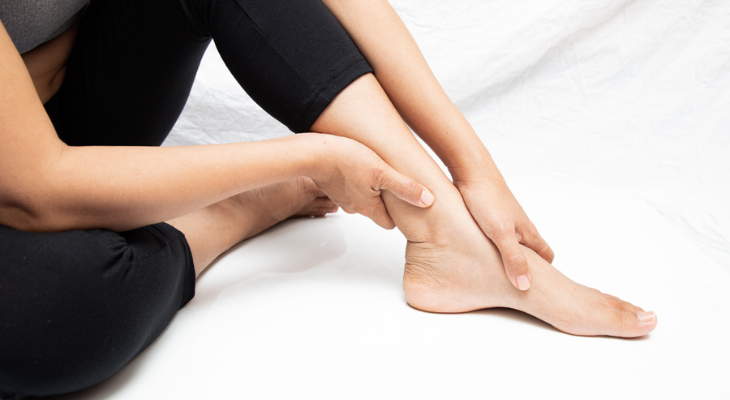
Chiropractic Care Could Ease Your Neuropathy Symptoms
Finding a treatment that keeps your pain under control can be difficult when you have neuropathy. Whether you're experiencing pain, burning, tingling, or numbness, your chiropractor can help relieve your neuropathy symptoms.
What Is Neuropathy?
Neuropathy happens when one or more nerves are damaged due to illnesses, injuries, toxins, or infections. The damage affects the normal transmission of nerve signals between the body and the brain. Neuropathy types include:
- Peripheral Neuropathy. Peripheral neuropathy, one of the most common forms of neuropathy, affects nerves outside the spinal cord and brain. An estimated 20 million Americans have the disorder, although the actual number may be higher, according to the National Institute of Neurological Disorders and Stroke. Peripheral neuropathy symptoms are often felt in hands, feet, arms, or legs. Diabetic neuropathy, a type of neuropathy caused by high blood sugar, is a common type of peripheral neuropathy.
- Focal Neuropathy. Focal neuropathy affects just one nerve and may happen if swollen tissues, a bone spur, or a misaligned vertebra presses on a nerve. Carpal tunnel syndrome is a common type of focal neuropathy.
- Autonomic Neuropathy. This form of neuropathy affects important bodily functions, like blood pressure, heart rate, bowel movements, and urination. It can be caused by injuries, diabetes, or other diseases, like multiple sclerosis or Parkinson's Disease.
- Cranial Neuropathy. Cranial neuropathy occurs when nerves in the brain are damaged. Bell's palsy, a condition that causes weakness or paralysis of facial muscles is a type of cranial neuropathy.
Neuropathy Symptoms
Symptoms vary depending on the type of neuropathy but may include:
- Pain, Which Can Be Severe
- Tingling
- Numbness
- Burning
- Weakness
- Muscle Cramps or Twitching
- Poor Coordination
- Loss of Sensation
- Loss of Bladder or Bowel Control
How Your Chiropractor Can Help
The treatments chiropractors provide relieve pressure on the nerves by keeping your spine and joints properly aligned and reducing tension on soft tissues. If you're experiencing tingling, pain, burning, and weakness in your arm, hand, foot, or leg, a misaligned vertebra, tight muscles or tendons, or a bulging disc could be to blame.
Small bones called vertebrae give structure to your spine, In addition to protecting your spinal cord, the vertebrae make it possible to move, bend, and twist easily. Your vertebrae can become misaligned due to a fall or poor posture. Although your posture may be perfectly fine when you're standing, spending hours hunched over your laptop or a video controller could cause misalignments, also known as subluxations.
A misaligned vertebrae could press on a nerve, triggering neuropathy symptoms. As a result of the subluxation, muscles and tendons can tighten in response and exert pressure on your nerves. A bulging disc in your spine could also be to blame for your neuropathy symptoms.
Your chiropractor offers treatments that relieve pressure on nerves to ease your symptoms. Spinal manipulation treatment restores vertebrae to their normal positions while easing pain, improving circulation and blood flow, and triggering the release of hormones that act as natural painkillers. Realigning spine allows tight muscles and tissues to relax and withdraw from your nerves.
If a bulging disc is the source of your neuropathy symptoms, your chiropractor may recommend flexion-distraction treatment. During the therapy, you'll lie on a segmented table that moves as your chiropractor adjusts your spine. The therapy decompresses your spine, which reduces pressure on spinal discs and nerves. It can also relieve muscle spasms and improve your range of motion.
Massage therapy offers a simple way to loosen tight tissues while reducing pain and improving blood flow. Soft tissue mobilization can help reduce the symptoms of Bell's Palsy. During treatments, your chiropractor gently manipulates the face to improve movement and mobility. In a case study published in the Journal of Chiropractic Medicine in 2013, chiropractic manipulation and low-level laser therapy improved facial movement by 70 - 80% in a 40-year-old patient. After the second treatment, the patient regained complete control of facial movement.
Transcutaneous electrical nerve stimulation (TENS) therapy, another helpful treatment for neuropathy, involves preventing pain by sending a gentle electrical current through the skin. The current blocks nerve signals from reaching the brain.
Wondering if chiropractic treatment can relieve your neuropathy symptoms? Contact our office to schedule an appointment with the chiropractor.
Sources:
National Institute of Neurological Disorders and Stroke: Peripheral Neuropathy
https://www.ninds.nih.gov/health-information/disorders/peripheral-neuropathy
Journal of Chiropractic Medicine: Chiropractic Management of Bell Palsy with Low Level Laser and Manipulation: A Case Report, 12/2013
https://www.ncbi.nlm.nih.gov/pmc/articles/PMC3838725/
NCBI: Neuroreport: Spinal Manipulative Therapy Reduces Peripheral Neuropathic Pain in the Rat, 2/7/2018
https://www.ncbi.nlm.nih.gov/pmc/articles/PMC6363337/
MedlinePlus: Peripheral Neuropathy, 4/25/2022
https://medlineplus.gov/ency/article/000593.htm
Chiropractic Economics: The Extensive Benefits of a Chiropractic Flexion Table, 9/15/16
https://www.chiroeco.com/chiropractic-flexion-distraction-tables/
